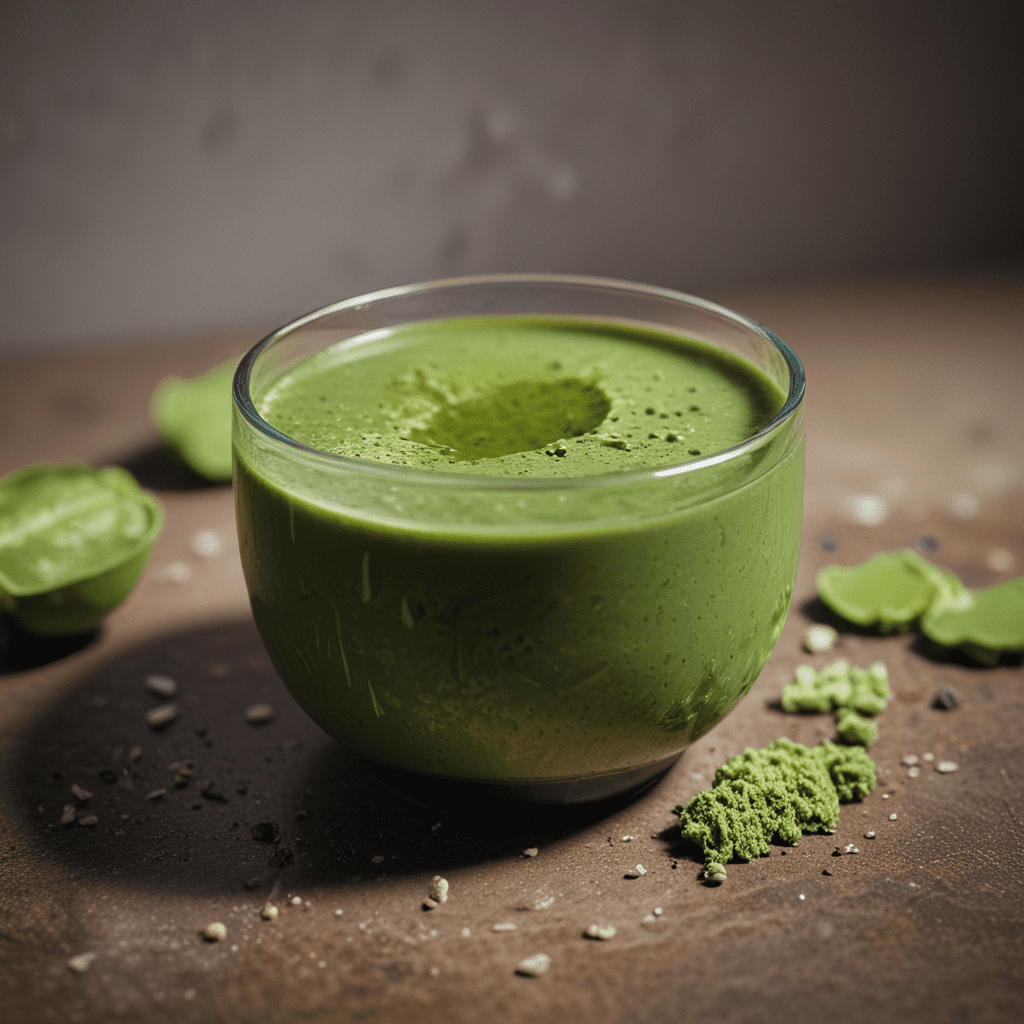
Matcha and Blood Sugar: Green Tea's Impact on Glucose Levels
Introduction: Unveiling Matcha's Therapeutic Potential
Matcha, a finely ground green tea powder, has emerged as a popular superfood, garnering attention for its numerous health benefits. Beyond its antioxidant and anti-inflammatory properties, matcha has also shown promising effects on blood sugar regulation. This article delves into the scientific evidence supporting matcha's impact on glucose levels, exploring its potential as a natural aid in managing blood sugar and promoting overall well-being.
Matcha's Composition: A Rich Arsenal of Health-Promoting Compounds
Matcha owes its therapeutic properties to its unique composition. It contains a plethora of bioactive compounds, including catechins, L-theanine, chlorophyll, and fiber. Catechins, particularly epigallocatechin gallate (EGCG), are potent antioxidants that play a significant role in matcha's blood sugar-regulating effects. L-theanine, an amino acid, promotes relaxation and enhances cognitive function. Chlorophyll contributes to matcha's vibrant green color and provides various health benefits. Fiber aids in digestion and slows down glucose absorption.
Matcha's Role in Insulin Sensitivity: Enhancing Glucose Uptake
One of the key mechanisms by which matcha influences blood sugar is through its enhancement of insulin sensitivity. Insulin is a hormone produced by the pancreas that allows cells to absorb glucose from the bloodstream. Matcha, particularly its catechin content, has been shown to improve the body's response to insulin, promoting efficient glucose uptake and utilization. Enhanced insulin sensitivity helps maintain balanced blood sugar levels, reducing the risk of insulin resistance and type 2 diabetes.
Impact on Postprandial Glucose Levels: Reducing Spikes after Meals
Matcha has been found to effectively reduce postprandial glucose levels, the rise in blood sugar that occurs after consuming a meal. Studies have shown that matcha consumption before or after a meal significantly blunts the postprandial glucose spike, preventing excessive elevation of blood sugar. This effect is attributed to the presence of catechins, which inhibit the breakdown of carbohydrates and slow down glucose absorption in the intestines.
Antioxidants and Inflammation: Matcha's Role in Sugar Metabolism Regulation
Matcha's potent antioxidants, particularly EGCG, play a vital role in regulating sugar metabolism. Oxidative stress and inflammation are linked to impaired insulin sensitivity, leading to insulin resistance and elevated blood sugar levels. EGCG, with its antioxidant and anti-inflammatory properties, helps protect against oxidative damage and inflammation, supporting the body's natural ability to regulate glucose metabolism effectively.
Matcha's Contribution to Weight Management: Effects on Glucose Control
Matcha can contribute to weight management, which is closely related to blood sugar control. Its high fiber content promotes satiety, reducing overall calorie intake and helping maintain a healthy weight. Additionally, matcha's ability to boost metabolism and increase energy expenditure further supports weight loss efforts. Maintaining a healthy weight is crucial for improving insulin sensitivity and preventing the development of type 2 diabetes.
Mechanisms of Action: Deciphering Matcha's Blood Sugar Modulation
The exact mechanisms through which matcha exerts its blood sugar-regulating effects are still being investigated, but several key pathways have been identified:
- Inhibition of α-glucosidase: Matcha's catechins inhibit the enzyme α-glucosidase, which breaks down complex carbohydrates into glucose molecules. This inhibition slows down glucose absorption in the intestines.
- Enhancement of GLP-1 secretion: Matcha has been found to stimulate the release of the hormone GLP-1, which promotes insulin secretion and inhibits glucagon release. This helps maintain balanced blood sugar levels.
- Improvement of insulin signaling: Matcha's bioactive compounds may improve insulin signaling, facilitating efficient glucose uptake into cells.
Limitations and Considerations: Balancing Benefits with Potential Risks
While matcha offers numerous benefits for blood sugar regulation, it's important to note some limitations and considerations:
- Caffeine content: Matcha contains caffeine, which can interfere with sleep and cause anxiety in sensitive individuals.
- Interaction with medications: Matcha may interact with certain medications, such as blood thinners and stimulant medications.
- Overconsumption: Excessive consumption of matcha can lead to side effects like stomach upset and diarrhea.
Optimal Consumption: Guidelines for Harnessing Matcha's Glucose-Regulating Abilities
To harness matcha's blood sugar-regulating benefits effectively, consider these guidelines:
- Dosage: The recommended daily intake of matcha for blood sugar regulation is around 2-3 cups of brewed tea.
- Timing: Consuming matcha before or after meals may provide optimal benefits.
- Quality: Choose high-quality matcha from reputable sources to ensure purity and potency.
- Preparation: Whisk matcha powder with hot water using a bamboo whisk until frothy. You can also add it to smoothies, shakes, or baked goods.
FAQ
Q: Can matcha help manage type 2 diabetes?
A: While matcha may support blood sugar regulation, it should not be used as a sole treatment for type 2 diabetes. It's essential to consult with a healthcare professional for proper management and medication.
Q: Can matcha be consumed daily?
A: Yes, moderate daily consumption of matcha is generally safe for most people. However, it's important to monitor intake and consult a doctor if any adverse effects occur.
Q: Is matcha suitable for children?
A: Due to its caffeine content, matcha is not recommended for children under the age of 6.
Q: How does matcha compare to green tea leaves?
A: Matcha is made from finely ground green tea leaves, resulting in a more concentrated form with higher nutrient levels.


